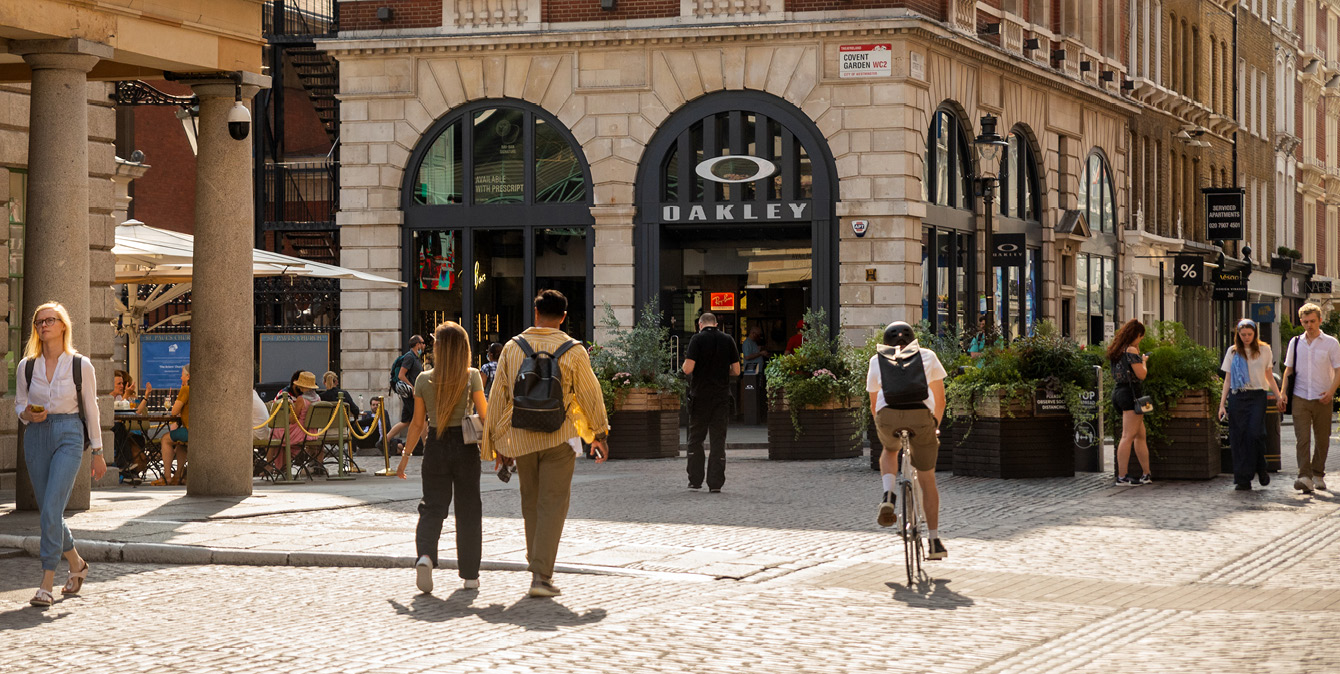Hand-in-hand with the performing arts, design, fashion, media, music and pop culture, the history of Covent Garden is bound up in work and productivity.
This stems in large part from the presence in the area of the fruit and vegetable market, which was established in the 17th century and lasted until the mid-1970s, during which time it was one of the capital’s most bustling centres of trade, with hundreds of wholesale businesses catering to the demands of thousands of daily visitors from all over the country.
These intermingled with the theatregoers who continue to attend the area’s venues ranging from the Theatre Royal to the Donmar Warehouse. The development of Covent Garden’s theatre-land brought with the growth of the local hospitality industry, from what is claimed to be the country’s oldest restaurant, Rules in Maiden Lane, to the American-style diner Joe Allen: in the 1970s the poster-laden basement in Burleigh Street was the haunt of everyone who worked in the local theatres, from front-of-house stars to carpenters, electricians and stagehands, and Joe Allen has been reborn for the 21st century, continuing to draw those flocking to performances.
It can be argued that Covent Garden birthed Britain’s whole food business. In 1976 the alternative publisher Nicholas Saunders acquired the derelict warehouse at 2 Neal’s Yard for his newly-formed natural food company and the small alley in which it is situated became home to such internationally-known names as Monmouth Coffee Co and Neal’s Yard Remedies.
Today the area’s food and beverages business thrives with such popular arrivals as North African-inspired The Barbary in Neal’s Yard, New York brasserie Balthazar’s London outlet in Russell Street, Louie, founded in West Street by the co-creator of Chiltern Firehouse, Petersham Nurseries in Floral Court and The Delaunay in Aldwych.
Side-by-side with the development of the market and theatres came the founding of Britain’s first magistrates court in Bow Street, bringing with it the world’s first police force, the legendary Bow Street Runners. Their station was situated on the site of the court with the introduction of the Metropolitan Police in the 1820s and many notables spent their time in the holding cells, from dramatist Oscar Wilde to the villainous 1960s criminals The Kray Twins. The station is now the site of the boutique hotel NoMad, which joins such long-established properties as the Covent Garden Hotel in Monmouth Street.
In the 1980s and 90s Covent Garden powered Britain’s creative industries by attracting the cream of advertising agencies and media companies, including Colman MGM, which handled such clients as Nike and Virgin Atlantic, and the cutting edge style stores which lined entire thoroughfares like Earlham Street, which drew fashionastas to the original outlets of Fly, Hackett, Red Or Dead and Michiko Koshino as well as the enduring bar/restaurant Freud.
And Covent Garden continues to deliver at the vanguard with such new ventures as the mixed-use scheme Soho Place directly above Tottenham Court Road station and the adjacent high-tech The Outernet which has created London’s first purpose-built music venue since WW2.
